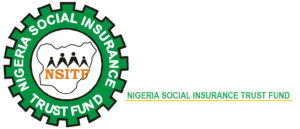
Insurance broker canvasses poverty eradication
A former President, Nigerian Council of Registered Insurance Brokers, Dr Teslim Adekunle Sanusi, has emphasised the need for individuals and corporate organisations to give to the needy.
A statement said while celebrating his 80th birthday by organising medical outreach for the downtrodden in the society, he said this was necessary to alleviate poverty.
He said, “I asked my friends, family and associates to contribute and we aggregated all that was given to organise the medical outreach. I urge the elite to give to the needy. No one gets poorer by giving and the more one gives, the more he or she gets in return.”
Also speaking at the event, the Chairman of the Central Planning Committee for Teslim Adekunle at 80, Mrs Ekeoma Ezibe, said the committee ensured giving to the needy.
Ezeibe, who is the vice president of the Nigerian Council of Registered Insurance Brokers, stated that eye tests were conducted on people and those who needed glasses were given, while those that needed surgeries had operations performed on them.
She said that many were screened for diabetes and those that required drugs were given the same, adding that they were counselled on how to live right and manage the disease.
She disclosed that eyeglasses were given to about 800 people and surgeries were performed on more than 100 people and counting, adding that thousands of people were fed during the exercise. Babies’ stool may cause diarrhoea, hepatitis, paediatrician warns
A child health expert, Prof. Edamisan Temiye, has urged parents to ensure that they properly disposed of babies’ stool, warning that its poor handling could lead to diarrhoea and hepatitis A.
According to the child care expert, no stool be it of a child or adult is harmless, warning that getting hepatitis A from stool could eventually cause liver failure.
He said that some mothers have the misconception that babies’ stool is harmless, noting that they dispose it of improperly because of this wrong notion, adding that some mothers also do not wash their hands after changing their babies’ diapers.
Speaking in an exclusive interview, Prof. Temiye who is a Consultant Paediatric Haematologist and Oncologist at the Lagos University Teaching Hospital, Idi-Araba, said diarrhoea is one of the greatest causes of death in children and is a top of the five causes of death in children.
The paediatrician said, “No stool is harmless and every stool should be disposed of appropriately in the sewage system.
“No stool is harmless, none at all. Babies’ stool is not harmless. It is a misconception. The moment a baby is born, the baby starts interacting with all the microorganisms in the environment, including the ones from the mother and the mother’s stool, the father’s stool, and the community’s stool.
“In communities where babies’ stool is not disposed of appropriately, the adults when they use the toilet, don’t wash their hands and when they touch and serve food, they spread the impact to children.
“That is one of the reasons diarrhoea disease is one of the commonest causes of death in children under five because those germs come back and the child who has low immunity could have diarrhoea.
“So, babies’ stool is not harmless. Diarrhoea is one of the greatest causes of death in children and is top of the five causes of death in children.”
According to the United Nations Children’s Fund, diarrhoea remains a leading killer of young children.
“Diarrhoea is a leading killer of children, accounting for approximately nine per cent of all deaths among children under age five worldwide in 2019. This translates to over 1,300 young children dying each day, or about 484,000 children a year, despite the availability of a simple treatment solution,” UNICEF said.
Prof. Temiye further said disposing of babies’ stool inappropriately could also lead to other killer infections besides diarrhoea.
“Other infections can be transferred through stool like typhoid disease, amoeba which may even cause liver problems.



